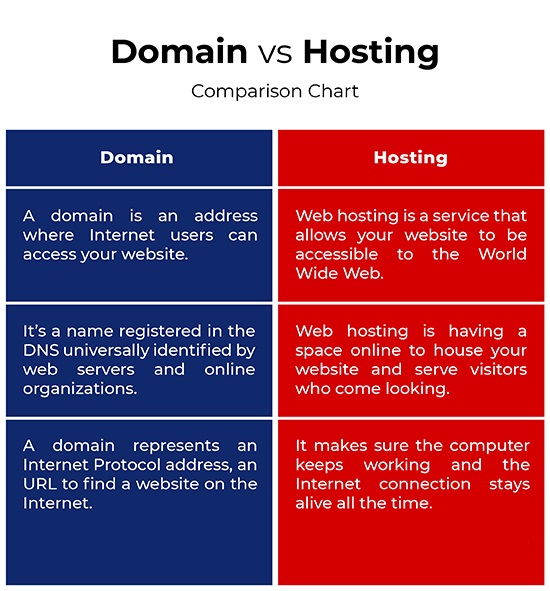Understanding the Difference Between Domain and Hosting
When it comes to building a website, there are two key components that you need to understand: domain and hosting. While these terms are often used interchangeably, they actually refer to two different aspects of your website. In this article, we will delve into the differences between domain and hosting, and why they are both crucial for the functionality of your website.
Domain Name
A domain name is the unique address of your website that people type in their web browsers to access your site. It is like the street address of your house – it tells people where to find you on the internet. For example, google.com is a domain name. When you register a domain name, you have the exclusive right to use that web address for the specified period of time.
Domain names are made up of two main parts: the top-level domain (TLD) and the second-level domain. The TLD is the ending of the domain, such as .com, .org, .net, etc. The second-level domain is the unique part of the domain that you choose for your website, like google in google.com.
It is important to choose a domain name that is easy to remember, relevant to your website, and reflects your brand. Your domain name plays a significant role in your website’s SEO and can impact how easily people can find and remember your site.
Web Hosting
Web hosting is the service that allows you to store your website files and data on a server that is connected to the internet. When someone types in your domain name, the web hosting service retrieves the files from the server and displays them on the user’s browser. In essence, web hosting provides the infrastructure that makes your website accessible to visitors.
There are several types of web hosting, including shared hosting, VPS hosting, dedicated hosting, and cloud hosting. Each type of hosting has its own set of features, benefits, and limitations, so it is essential to choose the right hosting plan based on your website’s needs and traffic volume.
When selecting a web hosting provider, consider factors such as server reliability, security, speed, scalability, and customer support. A reliable web hosting service is crucial for ensuring that your website is always up and running smoothly without any downtime.
Key Differences
- Ownership: You own your domain name, but you rent web hosting space.
- Functionality: A domain name is like your website’s address, while web hosting is the storage space for your website files.
- Renewal: Domain names need to be renewed annually, while web hosting plans need to be paid for regularly.
- Customization: You can change web hosting providers easily, but changing domain names can be more complicated.
In conclusion, both domain and hosting are essential components of your website, and understanding the difference between the two is crucial for building and maintaining a successful online presence. By choosing the right domain name and web hosting provider, you can create a reliable and user-friendly website that attracts visitors and enhances your brand’s online visibility.
